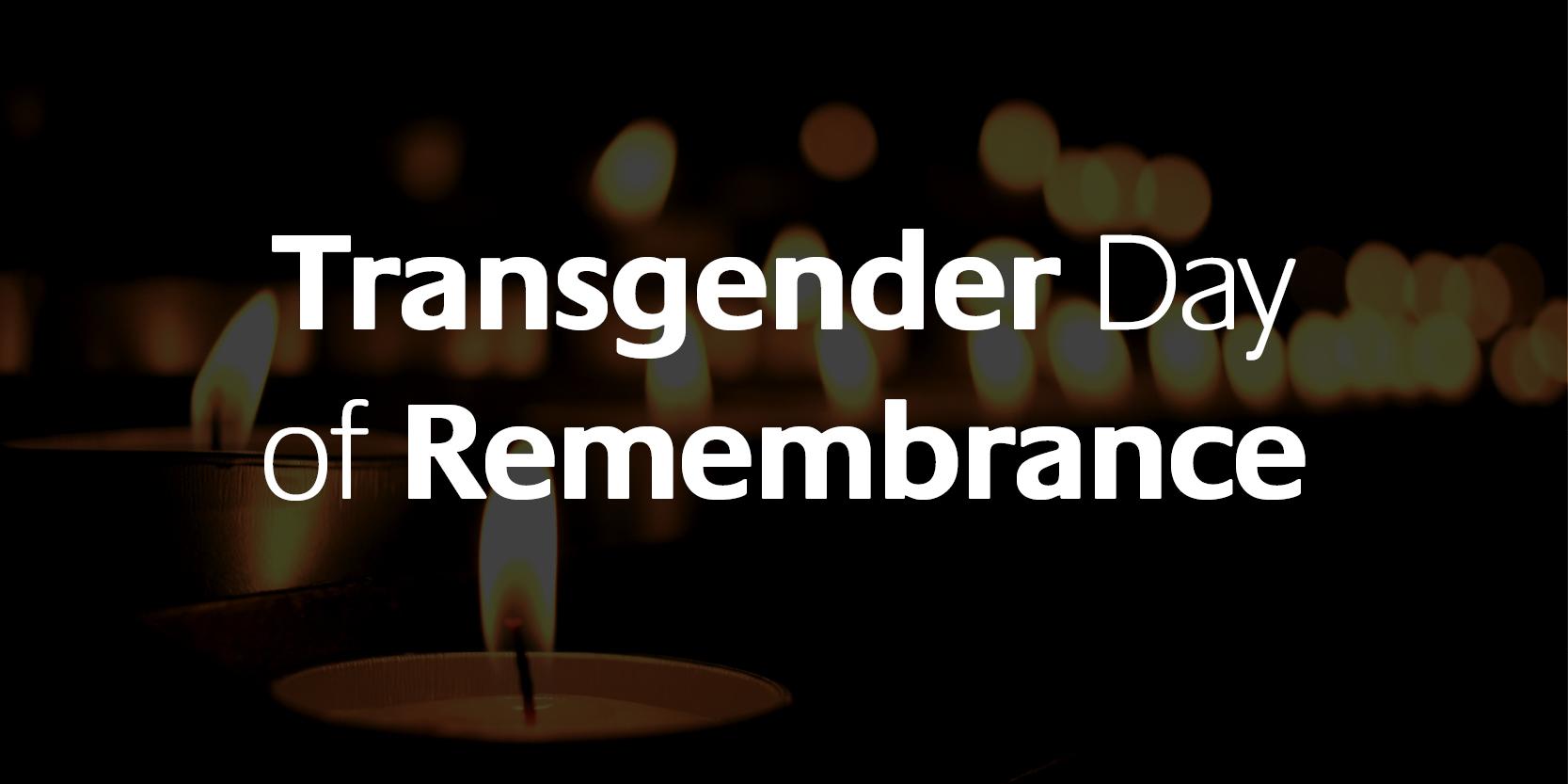
Transgender Day of RemembranceAdvocate and founder of The DMARCO Organization, Alexus D'Marco, shares her thoughts on this pivotal day.

Ms Alexus D’Marco
For me, this is a very important and significant day. Just as there is a day that commemorates the fight against violence suffered by cisgender women, we – the transgender community – deserve a day, too. It makes me proud that there is a day on which members of the global transgender community that have become victims of gender-based violence, can be remembered because we are also an important part of society.
My work has empowered me and helped me understand the importance of education and training. Being able to share my knowledge and life experiences with my peers has strengthened my own identity as a transgender individual and, in turn, helps my peers empower themselves and know their right to live free of violence.
I teach my community about important gender-based violence information – including its links with HIV – we need to provide information on the route of available services and give information about our rights and how to identify violence. The members of my community feel more confident in seeking health and gender-based violence services and demanding that their rights be upheld.
Most transgender people in the Caribbean community have no services available to them if they become victims of gender-based violence. There are no clinical and psychological services provided. We must educate on gender-based violence to our Attorney Generals Office, the local police.
We must strengthen these services and make them more friendly to trans people.We need more entry doors to free KP-friendly services than ever before. We need to sensitize staff at the institutions on gender-based violence training.
To end gender-based violence against trans people, we need to do a very big job. We need to create a new generation with a new way of thinking. We need to educate people from a young age to understand that being different is not a bad thing and that being different does not mean that we do not have the right to live free of stigma and discrimination. We have the right to live a dignified life.
Many trans people are ignorant of their rights. We have been mistreated for so long that many of us are afraid to seek help because we are afraid of being rejected and discriminated against while seeking services. So, after being victims of violence, many transgender people do not go to services on time or do not go at all, increasing their risk of HIV and other physical and mental health complications.
It is very important for programs to talk about violence because when people go to a workshop or an educational session about violence in the community, they empower themselves and discover their value as a human being. Then they are more willing to seek services, including HIV services, when needed. As a trans woman, I have fought and will keep fighting so these kinds of programs continue to increase empowerment in the trans community and reduce the incidence of violence.
The participation of partners and clinics in offering gender-based violence services is fundamental for all key populations. Transgender people in the Caribbean should now able to get stigma-free and cost-free clinical services, like post-exposure prophylaxis, and psychological counselling if they are victims of violence.
WHAT IS PANCAP?
PANCAP is a Caribbean regional partnership of governments, regional civil society organisations, regional institutions and organisations, bilateral and multilateral agencies and contributing donor partners established on 14 February 2001. PANCAP provides a structured and unified approach to the Caribbean’s response to the HIV epidemic, and coordinates the response through the Caribbean Regional Strategic Framework on HIV and AIDS to maximise efficient use of resources and increase impact, mobilise resources and build the capacity of partners.
What are the Global AIDS Strategy 2021–2026 targets and commitments?
If targets and commitments in the strategy are achieved:
- The number of people who newly acquire HIV will decrease from 1.7 million in 2019 to less than 370 000 by 2025
- The number of people dying from AIDS-related illnesses will decrease from 690 000 in 2019 to less than 250 000 in 2025.
- The goal of eliminating new HIV infections among children will see the number of new HIV infections drop from 150,000 in 2019 to less than 22,000 in 2025.
What are the 95-95-95 Targets for ending AIDS?
- 95% of People Living with HIV know their HIV status;
- 95% of people who know their status on treatment; and
- 95% of people on treatment with suppressed viral loads.
HELPFUL LINKS:
Global AIDS Strategy 2021–2026, End Inequalities, End AIDS
https://pancap.org/pancap-documents/global-aids-strategy-2021-2026-end-inequalities-end-aids/
Caribbean Regional Strategic Framework on HIV and AIDS (CRSF) 2019-2025
https://pancap.org/pancap-documents/caribbean-regional-strategic-framework-2019-2025/
